We have Dondi Scumaci and Dr. Samuel Bacharach. Dondi designs robust mentoring communities around the world. She’s a speaker and an author. Dr. Samuel Bacharach is also an author. He has a book. He’s the Co-Founder of the Bacharach Leadership Group and he’s a professor at Cornell University. We are going to have some smart discussions.
Listen to the podcast here
Mentoring Communities with Dondi Scumaci
I am here with Dondi Scumaci, an international speaker, author and expert in professional and personal development. She is known for high energy seminars that produce dramatic results. She is a bestselling author. You probably know her books, Designed for Success and Career Moves. It’s nice to have you here, Dondi.
Thank you for having me. I’m glad to be here.
I’ve had a lot of people on my show who suggested having you on. I was looking at your background and you have interesting specialties. I know you do a lot of mentoring and workshops. You deal a lot with women in the workplace. Is your main focus women or do you deal with both?
Human beings are the focus but when I wrote the book, I have three books that were designed and marketed to women in the workplace. It was pretty powerful. There was Designed for Success: The 10 Commandments for Women in the Workplace and that was my first book. I have had gentlemen say these are human skills. They are not just for women. I do agree that that’s true. The second book was called Ready, Set…Grow! and it was also designed to help us create a path that works for us. The latest one, Career Moves, is the one that Bob Burg had endorsed with me. I was honored by his comments about that book. It’s a little bit story, a little bit parable, and a little bit textbook. You follow these characters through the process and it’s marketed towards women, but I hear a lot of gentlemen saying, “Why do you do that? Why are you marketed towards women?”
The publisher’s idea is that women buy a lot of books. I always tell them, “You can take the covers off if you don’t want to see the high heel or the lipstick or whatever is on that cover. Pull it off and enjoy the book.” Human beings are the focus. The work that I do is around mentoring communities because if you can wrap community around any development, it’s going to go bigger. It’s going to have an amplification effect to it and that has been my experience with the mentoring communities. How do we create partnerships that are digging in and doing the deep work, but also then wrapping community around that? Almost like the mastermindish concept to create more of a magnification of the work.
[bctt tweet=”Fear is designed to keep us alive. ” via=”no”]I don’t know a whole lot about what led up to your interest in this and that’s what I wanted to know more about. Can you give me a little background on you?
I grew up in banking. I went to the banking industry right out of school. I took the stairs a couple at a time. I was the youngest vice president in the organization I worked for and that was because I had a great mentor. I had a great champion in my life. I experienced the power of that and how that’s challenging. I went from there to a regional bank in the Pacific Northwest, the beautiful Seattle area down the West Coast. I was recruited to a national organization. The same job, I was in charge of the sales force. I was in charge of the customer experience for that almost design thinking around how we choreograph this elegant experience for our customers. At that time, we were moving bankers out of this order-taking mentality into a more of a consultative structure say, “How can we help our clients manage their wealth and their finances? How can we do that in a client-centric way?”
I was doing a lot of speaking. I was doing a lot of motivational stuff for the workforce across the United States and then even some international engagements. I fell in love with that. As my career progressed, I felt I was getting further and further from the people and the action and more into the acquisitions and the legal stuff. The big strategies were interesting to me, but I wanted to be with the people. I made the bold move to say, “I’m going to go be a consultant,” which is code for unemployed. I stepped out of banking and took this mini-sabbatical and developed a strategy for my consulting practice. The books came after that when a publisher was at one of my events. It had an organic feel to it, but there’s also been a real design behind it as well. A little bit of where I’ve been is what I try to help people find that path that’s uniquely their own.
I feel strongly about that because for the first part of my career I took good care of what was in my hands. If you gave me an assignment, I would take good care of that. I was following the path. I wasn’t creating one. That was custom made for me. It’s possible to do that. We can leverage our strengths and we can be in a space where we love the work that we do. We’re not in job jail crossing off the tasks and getting stuff done. We’re connected to a purpose that’s meaningful. That’s where I am now, helping people find that whether that be in a corporate setting or whether it be through the books. They’re creating their own blueprint or their own map with the work that I do that way.
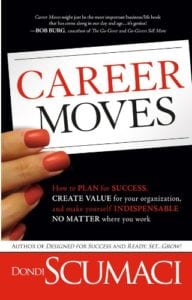
Career Moves: How to Plan for Success, Create Value for Your Organization, and Make Yourself Indispensable No Matter Where You Work
I can see why Bob Burg would suggest that we connect because we have a lot in common of what we’re trying to do. I was in banking as well. What you’re talking about is a lot of what I’m trying to do with my books and work on curiosity because I love the job jail.
I applaud your work on curiosity. I’m going to dig into that a little bit more because when I was looking over your work and your site preparing for our conversation, I saw the curiosity piece and I thought, “That’s intriguing to me.” If we can get more curious, that ignites us. It’s a little bit of a model that I presented in Career Moves, which was the High Performance Zone model. There are four elements of that. One of them is perspective and one of the things I talk to people about is if you want to grow perspective, you’ve got to get curious. You’ve got to ask better questions of yourself and each other and of the marketplace. The curiosity piece is intriguing to me.
That ties into it well. The four things I found that held people back from curiosity were fear, assumptions, technology and environment. Assumptions and environment are a lot to do with your perspective. It’s around you, what people are doing. It’s not following what other people have decided you should do. That’s your environment or you follow it because your assumptions are, “My whole family has always done this. This is what I should do. I’m not interested in something else.” You think that because you never have tried it. It seems boring or whatever. I could see how it ties into what you’re saying. We’re saying similar things because we’re going to hear so much about people being displaced because of innovation, artificial intelligence, everything taking over, and moving people around. If you’re getting into one job jail to another job jail, that’s not good. We want to find out what people are good at.
Fear plays into that too because sometimes when people are displaced, or they sense that change in the environment, there’s almost a parallelization. I’ve seen many people do this. “I’ve got to find a job. I’m going to lose this job. This job is going away, or this job is being marginalized.” That whole thing that Shawn Achor talks about in The Happiness Advantage is that moment when we’re afraid. There’s science to this. The brain narrows and it’s the part of our brain that’s primitive and it’s designed to keep us alive. If you look at an afraid brain under a brain scan, you’re going to see a narrow strip is lighting up. If you look at a relaxed mind under the scan, the whole thing is lighting up and it’s this paradox that when we need those resources the most, they probably are not there available to us. We can’t access them because we’re operating in the space of fear and we’re trying to stay alive. That moment of change might be catapulting us into something that’s marvelous and glorious if we could relax at the moment.
I ride a horse, Fortunato, which I rescued. Fortunato is four years into dressage. When his trainer rides him, he’s super fancy. When I ride him, it’s not quite so because I’m still trying to figure him out and he has some fancy buttons that I sometimes push by accident. When I was first learning to canter, it was frightening to me. I started as an adult well on in my life. When you’re a child, you don’t worry so much about falling off because you think you’re immortal. When you’re my age, you know you could die. I would be holding on tightly. My trainer would be saying, “You’ve got to sit back and give him his head. You’ve got to relax.” It is this paradox. It is this counter-intuitive moment where if you will relax then he can take off and you’re restricting his movement. That taught me this important life lesson that in my life I was clutching at that moment where if I could sit back and breathe. I could not only enjoy the moment more but then I wasn’t restricting the flow. It is counter-intuitive because when we are in those moments of change or we feel that threat, our first reaction may be to clutch. I’m learning how to ride that. I’m learning how to relax at that moment and not let fear drive me into a ditch.
Do you think that’s something you see more in any particular generation? Are younger generations less likely to find that counterintuitive? Is it pretty much the same across generations?
[bctt tweet=”People that are struggling have forgotten who they are. They have forgotten what they’re capable of.” via=”no”]I’m not sure. It’s a human tendency. Maybe it’s relative. What frightens a younger person might not be frightening to someone who has more life experience and vice versa. Fear is fear. If I’m afraid that I’m not going to be able to pay my bills, if I’m afraid that I’m not enough, if I’m afraid that I’m not going to make the cut or people aren’t going to approve, whatever those fears are, it’s a human condition that we all pack around fears. It’s interesting how we hold tightly to those fears. In those moments we are clutching. We’re clutching to this thing that’s going to hold us back versus letting go and learning how to breathe at that moment and ride that wave. Career changes are much like that. Sometimes people are thinking about a career change, but job jail sometimes is in the role that you have. How could you operate differently where you are? How could you bring yourself more fully to that? How could you be a greater resource for the people that you serve? How could you find more joy in that?
I have a great friend, also a speaker and an author, who says, “You don’t have to look far in any organization to find something to make better.” I always remember in the mentoring work that I did with a woman who had approached me at a mentoring launch for a large organization. She heard me talking in the hallway and up to that point we’d only been audio, we’d been preparing for the event. She said, “Dondi, I want you to know that before I was chosen for this mentoring journey, I was actively looking for another job. I was bored in my role and I felt I had been sidelined and marginalized.” I was chosen to be a part of this mentoring process. She said, “I figured something out right away with my mentor and it’s that I need to grow in my role. There was room to grow in my role. I could more fully occupy the space that I am already in.” The rest of the story is that within about a few months she received an impressive promotion. Sometimes we’re thinking about what’s next and maybe what’s in front of us is the opportunity that’s the launching pad.
A big part of what I’m thinking with asking questions and developing curiosity is you have to explore by having this conversation. I don’t think a lot of people are looking around them. They’re working hard but not smart. A lot of the stuff you’re talking about is tied to what I found as well. I know you dealt with a lot of things in your past books as far as what it takes for women to be successful in the workplace. With Career Moves and all your work, I’m wondering what you’ve seen has changed since you wrote that original book? Is it any different for women now in the workplace? Is it any easier? I’m thinking of my banking experience and I was the only woman.
I was definitely in the minority as well. Maybe the landscape is changing a little bit. What I learned through Designed for Success and even in Career Moves, and I would say Ready, Set… Grow! as well is that more often, it’s something out there in the environment. It’s something in me. It’s my assumption. It’s my fears. I could also include myself and I’m in good company with a lot of great women is that what was holding me back was my own approach. It wasn’t some ceiling over my head. I had great champions. They happened to be men, but they were wonderful mentors and helping me to be effective and encouraging me to explore. I’ve had the wind at my back and I’m grateful for that because I don’t think everybody gets to have that. I feel fortunate for the early on leadership that I had. My experience has been being that more often than some glass ceiling or some invisible wall that women are bumping into, it’s in our own approaches. We’re not exploring. Is there a different approach? I’ll give you one example.
I had a pretty successful woman talking about how her ideas were not being implemented or received. That was frustrating to her and I said, “Have you considered another way of presenting those ideas? Is there a more creative way? Could you design an approach that would open that door for you?” It hadn’t even dawned on her that it might be something in her own approach and how she was presenting her ideas. We played around within a design thinking way. How could you involve the audience more? How could you create some emotional response to this or an emotional connection? Her idea took off. Up to that point, what she was assuming is, “I’m not being heard because of the role that I play.” I don’t think she was assigning it to gender, but she was, “I’m not being taken seriously in this role.” She had no voice because her message wasn’t resonating.

Organizational Inertia: When we are in moments of change or we feel threat, our first reaction may be to clutch. Learn how to ride that and relax at that moment and not let fear drive you into a ditch.
I’ve seen both of those things. I’ve seen women who tried to act like men in a certain way and then that would turn men off because they’d try to do a certain thing that wasn’t natural to them. Your mentors being male a lot of them and I had both but mostly men too because in banking and different things. One of my best mentors was a female in banking, which she didn’t see much of that at the time. Do you think that it’s better to have a female or male mentor for women or does it matter?
My gut level response for that would be it’s not about the gender. It’s about what you’re trying to learn. I’m a big believer in the hallway drive-by mentoring, situational mentoring. We should have lots of mentors in our lives. Sometimes people will say, “How do you find a mentor?” Here’s what I do suggest that you not do. I don’t think we walk up to someone and say, “Will you be my mentor?” Do you remember that book, Are You My Mother? That was a little duckling or something that lost his mother and he was running around the barnyard asking all of the other animals, “Are you my mother?” That’s a big question. That’s asking someone, “Will you be the godparent to my child?” That’s a huge commitment. If I walk up to you and say, “Diane, I want to run something by you. I would appreciate your perspective on this.” That’s mentoring.
Sometimes those conversations will turn into something more because there is a value that’s being exchanged in that conversation. Sometimes it will be a one-off, it will be situational. I would let my challenges and my goals guide me to the right people, whether they’re male or they’re female to say that, “What am I trying to accomplish? What am I struggling with? What has challenged me? What’s blocking my progress or blocking my path?” Reach out for the people who might be able to shed some light on that. I remember one of my mentors. I was still in banking and I was struggling. He’d said, “Bring your goals. Sit down.” We sat down. We happened to be in an airport going through this. I was flying through and he met me at the airport. He said, “Show me your goals.” As he looked at these goals, I felt I was failing. He said, “Where do you get the impression that you’re failing?” I said, “The organization is not happy with these numbers.”
He said, “These numbers are outperforming the marketplace and here is the dilemma that you have. Your people are well ahead of the curve in the market, but they think they’re failing, and that’s on you. You got to go back and put your big girl panties on and renegotiate these goals and give your people a sense for the win that’s already taking place.” I remember sitting back in my chair and thinking, “I didn’t see that.” I was told to get these numbers and like a good soldier, I was going to go get those numbers. I didn’t question. At that moment, I learned. I’m going to do my homework. I’m going to make sure that goals are challenging yet rooted in reality and connected to data that is real, not something that’s pulled out of a hat somewhere in a boardroom. I learned so much from that. That was 30 minutes, a slice of pizza, and then when I was leaving, he said, “I have one last piece of advice for you. You need to remember who you are. You’ve forgotten. Have a good day.” He was right. I had begun to question myself.
The fear was starting to creep in of failing and falling. That little reminder at that moment in an airport as I was swallowing my last bite of pizza and he said, “Remember who you are. Don’t ever forget who you are.” When I meet people out there who are struggling, they have forgotten who they are. They have forgotten what they’re capable of. Maybe it’s that appreciative inquiry. Maybe you need to go back and remember those wins, refuel and refresh because we can get focused on what we’re not. We can get focused on what we have to do to grow. We can get focused on the deficits. This is all for a good time of year, a good season. If there’s a change going on, step back and say, “I’m going to spend a little bit of time reflecting on what has created my wins because they were not accidents. They may have been unconscious competencies that were operating, but my successes are not accidental. I believed some things. I was doing some things. I was using some skills and I need to be more intentional with those pieces in the future.”
[bctt tweet=”Myopic organizations are never looking for new ideas. Clunky organizations are looking for new ideas but can’t deliver on them.” via=”no”]That inner monologue you have going on is important and people don’t realize what we tell ourselves. You brought up such a huge point. It’s no wonder you’re such a successful speaker. It’s because you do a nice job of painting that picture. In addition to speaking about these things, you help people in your workshops. What do you do for your workshops? I’m curious what those entail.
There are a variety of workshops but mostly they will be around performance leadership. They will be around mentoring. This will resonate with the work that you do as well. It’s about connecting people to the bigger picture and making sure there is a purpose behind the task, the why behind the what. Making sure that people are deeply connected to that and feel they are making a contribution towards something that matters. There are a lot of practice around that whole performance management. Am I meeting expectations? How do I help people meet those expectations all the way to performance coaching? How do I help people start to enlarge the space that they’re in, occupy it more fully, and make it their own? All the way to mentoring, how do I help people prepare for that next step? How do I help them get ready? How do I help them become the natural choice for the opportunities that they seek? Along with that spectrum of performance all the way from performance management, which is more helping people to understand what the job is. All the way through my first love would be how I help you become the natural choice for the opportunities that you seek?
When those opportunities are being created or vacated anywhere within your industry, your name comes up. It’s top of mind because you’ve created the brand that ushers you into that space. It comes down to a model that I’ve always used from Designed for Success and that’s sometimes people are focused on their opportunity and I’ve never had anybody say, “Don’t tap. I don’t want any more opportunity. I have too much.” People get focused on opportunity. My premise is that if you will focus on your value. The opportunity is starting her car. You don’t ever have to worry about it. Opportunity will show up. If you make yourself more valuable, if you keep adding value to what you do and becoming more valuable as a resource to the people that you serve, your opportunity is on the way. That’s refreshing because that’s the piece we can control. I don’t control the technology, automation, machine learning, and AI. I don’t control all of those disruptors out in the marketplace, but I do control my preparedness. I do control my value and how much value I’m releasing into the environment. I can focus on the things that I can influence and control and those will direct my outcomes ultimately.
You’ve made such an important point and I can see why people would learn much from your workshops and your speaking and everything that you’re doing. We all need to work on increasing our value and what we bring to the workplace. Everything else follows. You mentioned something about your book, a free chapter that people could get. Share that with my audience. Can you tell people how they can get it and how they can reach you?
I would love to have them open their gift. It is on my website, DondiScumaci.com. Right there on the landing page, they’ll see, Open Your Gift. Click on that and it’s a free download of the first chapter. You don’t have to sign up. You don’t have to sign in. It’s truly a gift. There’s some great information in that first chapter. I hope that your audience will enjoy it.

Organizational Inertia: Reach out to people who might be able to shed some light on what you’re struggling with and what’s blocking your progress.
Thank you so much, Dondi. It was fun having you on the show.
I’m happy to be here. Thank you for having me.
You’re welcome.
Dealing With Organizational Inertia with Dr. Sam Bacharach
I’m here with Samuel B. Bacharach, who is the Co-Founder of the New York City-based Bacharach Leadership Group, BLG. He’s also the McKelvey Grant Professor in the Department of Organizational Behavior at Cornell University. He’s the author of The Agenda Mover and Transforming the Clunky Organization: Pragmatic Leadership Skills for Breaking Inertia. It’s nice to have you here.
Thank you very much.
[bctt tweet=”The ability to mobilize people is part of the political skills you need to move your hopes with a personal career agenda.” via=”no”]I was looking forward to this. I’m interested in your work on inertia. Some of the stuff I’ve seen online of what you’ve talked about was interesting to me of the reasons that organizations fail. You talk about how companies can become trapped by inertia. I was wondering if you wouldn’t mind giving some examples because I liked one of the videos I found about you talking about how Dell had some issues in the early 2000s. It can also be Blackberry and you had a lot of great examples. Can you give us a little background why inertia is important and give us some examples of how some of the companies we wouldn’t even think would have a problem had a problem?
I began to back up into the topic inertia in my writing in The Agenda Mover about what it takes to move ideas in organizations. The more and more I talked about it to corporations. The more I talked to people in organizations especially people like engineers, not just HR people. Do you know what they would ask me? “What exactly is the leadership issue supposed to solve?” I would sit there saying, “This is important,” and I spent a few years thinking about the research I’d done previously. It struck me that what we use leadership for is to deal with organizational inertia. By that I mean organizations that get stuck. If you look around, most of the organizations that are out now are going through periods in which they’re on again, off again. People talk about organizations failing. By the time organizations are failing, they don’t need me. They need the undertaker. My whole point is to how to get it going again. Even if you are a major corporation, if you don’t believe it, look at the market.
They go through curves. When you go back and you think about why is it they get stuck and not fail, why is it that they get stuck? Inertia has the way of thinking about the key aspects of organizations that leaders deal with. We want to avoid inertia. That’s in our personal lives. We have this sense of wanting to keep moving ahead. You can be doing well and be having good luck, but you’re still stuck. I get fascinated by the structural issue or the issues that they could lead to inertia. Then I ask myself about how we could do something about the inertia using leadership. The question was, “Why do organizations get stuck? What’re the causes of inertia? Second, what are the specific leadership traits that can help us overcome inertia? How do you train people to overcome that? That’s been my agenda for the last few years. That’s what’s in the series of three books.
It ties into what I’m studying with curiosity. How does curiosity tie into inertia? Isn’t that a key aspect of it?
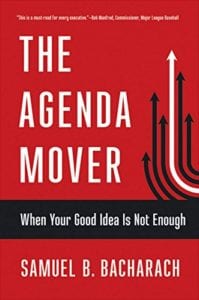
The Agenda Mover: When Your Good Idea Is Not Enough
I’m not sure. When I think of inertia, I tend to think of it in relatively structural terms. The problem I see is a structural problem. You ask yourself a moment, why is it most of our corporations get stuck? They generally get stuck for two simple reasons. They become clunky. By clunky, I mean they have overlapping structures. They have gotten non-integrated businesses. They’re successful, they’re some of the best corporations in the world. What happens over time is the clunkiness makes for some level of inefficiency and repetition and then you begin to realize that these organizations become stuck on one hand. What happened to Kodak? Kodak simply went down not because it was clunky, it was because it’s myopic. If Kodak wasn’t myopic, they’d be one of the major corporations in this country because they have the technology. They kept us focusing on what they were doing, and they had no way of expanding it. In your term, they weren’t particularly curious. That’s two major reasons that we’ve argued that organizations get stuck either because their clunky or myopic. You see that in that relationship between the two. That’s the theme of The Clunky book and what leadership can do about that. To me, the notion of a leadership challenge is what we try to show the people to avoid organizations.
What are the steps to teaching them to not be myopic?
You think about what do we want organizations to do? We want them to discover new ideas. If you’re discovering new ideas, you’re at the top of the game. You’re at the top of the competitors to know what’s going on. You bring new ideas into your organizations, but that’s not all. We want to be also to deliver on those ideas. Organizations get stuck because either they’re not discovering new ideas or they’re not capable of delivering those ideas. Myopic organizations, for example, are never looking for new ideas. Clunky organizations are looking for new ideas but can’t deliver on them. That’s the difference between the two. The leadership challenge is how you make a part, give people the skills to make sure that organizations are discovering and at the same time delivering the new ideas.
Most of the work I’ve done is trying to identify those attributes or competencies that allow people to accomplish both of these and that is what we’ve done. You think in terms of discovery. You think about number one, this whole idea of do they read? Do we have leadership problems in the organization who reads what’s going on in their environment all around them well? Do they understand the context? I can’t tell you how many times, and I’m sure you’ve passed it on to us. You’ve been in organizations but they’re not reading the signals. What’s going on? Signal reading is a big deal. They’re not picking up on the cues. They’re not quite dialoguing with their customers correctly. They’re not picking up trends. They’re not sticking a price there but they’re always laggers. In your terms, I would say that you’ve got leaders are not genuinely curious about what’s going on around them. If they are curious, they’re not deeply curious about what’s going on.
If you think about it from an organizational structure point of view, many organizations have no mechanism in place to make sure that they stay competitive in terms of understanding the environment. The second thing is you want to stop ideas is you go back to ideation. Can you take the ideas from the outside and deliver and train people to deliver on the ideas? It’s to get this a prototype or something that’s operating. You have leaders that can lead for ideation internally. I like your idea. I’m curious about your idea about curiosity, but discovery to me is both reading the environment and training people to do that and then ideation to make sure the cues become actual products. That’s all in the first half. We come up with ideas in most of our corporations. I always tell people to give me a bunch of seventeen Cornell undergraduates. Lock me in a room with them. I’ll come up with enough ideas and you know what to do with them. The problem is we come up with these ideas. Our corporations avoid this. The problem is we often don’t deliver on those ideas. We don’t have the political skills to deliver on them.
Know your vision. Do you know how to create the coalitions? Do you know how to get the buy? Do you know how to move the agenda in your organization? Do you have political competence? You may be the most creative, serious person in the world but if you don’t have political speech, you’re not getting something done. Finally, do you know how to retake the ball and make sure that something is accomplished all the way? Can you manage to make sure your projects go all the way? Those are the two components, political competence. Major competence for delivery. I’m simply saying is that my notion of leadership could deal for those that are pretty mundane. It’s one of the skills you need to discover and one of the skills that you need to deliver. They’re the four skills we try to identify. That’s most of my focus around that for the last number of years.
[bctt tweet=”When you go to a meeting, stop concentrating on your ideas. Concentrate on other people’s ideas. ” via=”no”]I’ve had people on the show talking about companies who used to say, “Don’t bring me a problem unless you have a solution,” but then they would not be the person to offer this solution. They may recognize a problem then you’re shutting down even finding out the problem if you do that. Do we have to have everybody have all the skills? Can the idea creator not necessarily have political skills but pass it off to his team member?
Isn’t this the tantamount question we will always ask you about any behavioral skills? I’ll give you an example. I had occasion to speak to a group in California. It was about the 40 of the smartest engineers in this country. I was the dumbest person in the room. These guys and gals were brilliant and then the discoveries they made. The problem was when they needed to get financial support, move the ideas from Bangalore to the Research Triangle in North Carolina and get the support they need to move that agenda ahead, they weren’t able to do that. That’s exactly the point. On the other hand, some of the best people capable of moving ideas to the organizations are not the ones that are standard. If you take a look at some great leaders, it was always this talk. How much did Steve Jobs understand about technology? How much does Gates understand about technology? Sometimes those people that understand the periphery of the framework are the ones capable of moving those ideas. It is rare that we have the same person have the same skill, but it does happen.
I was talking about this with Rich Karlgaard and Steve Kerr and some friends of mine. Rich wrote a book about teams and you need the Woz to have the other part of the team. You can’t just do it with Steve Jobs. It ties into what I was seeing in some of your other talks about charisma and how people rely totally on that. Maybe how important it is or isn’t important. You wrote about how the leaders were born versus made discussion. If we could make leaders, if they’re not necessarily born that way, then we can build these political skills. How do you do that?
Let me tell you about this whole thing. We have to unpack one thing. It’s an interesting trend. I remember when I was a graduate student. We all know that charisma is a double-edged sword but there’s a problem. When we talk about transformational leaders become charismatic. When I hear from this level I go, “How do I give the skills to lead to these things done to people that are not charismatic?” They can’t but most are afraid to lead. Let me say something that may be provocative but totally honest. I have been teaching at Cornell for years and I can’t tell you how many times in the last ten years I’ve had people to give me a list of charismatic leaders. I can tell you the list. It’s people like Kennedy. It’s people like Martin Luther King, Abraham Lincoln. Once in a while, they told me Margaret Thatcher.
Charisma is embedded. Whenever you have people who are charismatic, you ask yourself personally. We identify charisma as a key attribute. We take that attribute and this portion we think men are charismatic. We’re not leveling the playing field in terms of leadership. For me, leadership is about one thing. Charismatic, not charismatic, we’ve got to give people the skills to execute. Some of the best people I know in corporations and higher education are people that can execute them. A lot of those people weren’t people who are invited to the table a long time ago because they were not coded by the classic charismatic notions. I worry about charisma as being a defining attribute of leadership. By those criteria and most of us wouldn’t be allowed to play.

Organizational Inertia: Some of the best people capable of moving ideas to the organizations are not the ones that are standard.
What did you think of Susan Cain’s work with Quiet? Did you think that helped shed light on the value of into introvert?
We have such an unconscious bias. The silent, the quiet person is unable to move the ideas. Those are things that we can give people. I’m hoping and see it more and more as we see change and I see them on assuming level. We can’t train people political skills. I want to give you an example completely out of the box that doesn’t quite fit this. Every so often part of my personal life is to spend time with community colleges. I go to those community colleges and will see kids. I say to them, “How can you get from here to Cornell or some other great institutions that you may not be thinking about?” I make it clear to them that networking, the ability to lead. The ability to mobilize people is part of the political skills they need to move their hopes with a personal career agenda. I believe you can train people those skills especially if they’re curious about what’s going on out there. I do believe that’s slowly seen over and over in various settings and it does work. I may be foolish, but in the last years, training in political skills like this is something that I have taken great pride quite a bit of.
It’s an interesting thing to see the skills you can build. Daniel Goleman is going to be on my show. With my research on emotional intelligence and soft skills in general, emotional intelligence can be defined differently based on research or soft skills. Everybody has a whole different twist at it. What things fall into political skills? How do you define that specifically?
I do a lot of higher education organization. We had a three-day workshop on it. First of all, we teach them the idea of trying to anticipate. How many times have you been in meetings where you’ve got to do your homework? There don’t understand what doing your homework means. You didn’t do your homework? They think that doing your homework means you didn’t study your idea well enough. You’ve got to figure out all the arguments. It reminds when I was in graduate school. I first defended my dissertation, my work for my PhD, I failed. They killed me. They demolished me. It was a death wish in Madison, Wisconsin. The point is I went back to my major professor and he said to me, “You read everything but the thing you’re supposed to read.” I said, “What was that?” He made me read the dissertation of every member of my committee. He had more political savvy. He went on to do great academically.
He gave me such sage advice. “When you go to a meeting, stop concentrating on your ideas. Concentrate on their ideas. When you go to a political meeting, try to anticipate. Know who you’re dealing with. Know who the stakeholders are. Know the nature of their power. Know the nature of the resistance. How many people are there going to be? Focus on these ideas.” Some of these people are planners. Some of them improvise. We spend a lot of time teaching people the templates that they should keep in mind when thinking of the political terrain. Once you know who’s who, ask yourself, “Who do you want to align yourself with?” Stop worrying all the time about having consensus. Sometimes you can’t move things with total consensus, but you may have to align with certain people at the expense of other people. Know how to create this alliance. Know how to create an appropriate line. Know what will align with you. Anticipate their argument, not justify your agenda. How do I freeze up and reduce the anxiety of another party?
[bctt tweet=”It’s not the best ideas that always come to the surface. It’s the ideas we fight hardest for.” via=”no”]What I’ve focused on with some of my colleagues is how do we give people those micro skills? We still have time with games and issues like that but how do we give people the micro skills to become that political competent? I come from a checklist world. When I work with people, I want to know the key things of this and how they’re going to do it. It may be different. A lot of time teaching people in organizations and then by that sense we make them much stronger change advocates or organizational leaders. For me, it’s very doable. Think about this context of big clunky organizations. Most organizations you have to fight for support for your ideas and funding great ideas. If you believe that organizations are a pure meritocracy, then good luck to you. It’s not the best ideas that always come to the surface. It’s the ideas we fight the hardest for.
Going back to what you said about your dissertation, I’d like to say that I was a doctor doctoral chair and he didn’t prepare you. He should have made you proactive. He told you after the fact and then he’s telling you, you weren’t prepared. It comes back on him a little bit.
Consider we had a 35-year reunion. I will defend him to my death even though you might be right. He was a much better scholar.
I was in sales for many decades. Sales teach you many of these skills that you’re talking about. That was the thing when I ran the MBA program as a Program Chair. I was looking at a lot of soft skills and some of the things that they aren’t incorporating well enough in the courses at the university level even. They come in with a hard knowledge but then they get fired for their behaviors because they haven’t learned this stuff. Where do we teach it? Do we have to wait until somebody like you writes a great book? How do we get it?
If people are waiting to read my books, then you’ll wait much too long. A lot of us have learned. We have to begin to teach it methodically. Let me give you an example. I’ve been involved with a lot of HR. You’ve heard that line? Is HR-positive? The first time we had HR people, “How do you win that place title?” We don’t spend enough time with HR people for example, always engineers. We’re telling you what they need to do to win people over. I shouldn’t exaggerate downwards for a few years but let’s say I taught for Cornell certainly, before a good number of decades. I’ve had some grad students who are CEOs, people whose names you would recognize because Cornell is one of the schools of choice in New York. When I look at the ones, I had been on one and when I speak to him, I see someone who knows how to pull those skills together. I setup a lot of them.

Organizational Inertia: Sometimes you can’t move things with total consensus but you may have to align with certain people at the expense of other people.
Someone else went on to become a corporate VP, HR VP in a Fortune 7 company. I couldn’t tell you she was the most brilliant person in the class. She knew where she was going, how to mobilize people, and how to move them ahead. She had that sense about her. Subsequently, together we built some progress. I don’t say that the MBA program is punching people political skills. I don’t get it at all. We’re convincing people. If good ideas would always come to the surface, we know all of our life would be a lot different. We know how much we have to fight. Mediocre ideas do equally well as great ideas. Sometimes people have a good idea. Back it up and that’s it.
What you’re working on is fascinating. I know you’re a columnist at Inc. and you’re a frequent keynote speaker. You do corporate events and many different things. A lot of people probably find this fascinating because I know I did. They probably want to know more about how they can find out more about your book and if they want to hire you.
The books are The Agenda Mover and Transforming the Clunky Organization. Both are published by Cornell and they’re both in Amazon. You can always go to BLG-Lead.com or you can follow me on LinkedIn or Twitter. Write me at SB@BLGLead.com. I welcome dialogue discussions. These are exciting ideas. When you have something interesting it turns your own work rapid. If you don’t have the curiosity to get any of this stuff, how can you leave them all? I’m looking forward to meeting with you.
Thanks. I’ll definitely make sure you have a copy.
Thank you.
It was nice to have you on the show. Thank you.
Thank you very much for your time.
—
I’d like to thank Dondi and Sam for being my guest. What a great show. I enjoyed talking to both of them. We had many great guests on the show. If you’d like to know more about Cracking The Curiosity Code or the Curiosity Code Index, you can go to CuriosityCode.com. I hope you join us for the next episode of Take The Lead Radio.
Important Links:
- Dondi Scumaci
- Dr. Samuel Bacharach
- Designed for Success: The 10 Commandments for Women in the Workplace
- Career Moves
- Ready, Set…Grow!
- The Happiness Advantage
- Are You My Mother?
- DondiScumaci.com
- Open Your Gift – Free download
- Bacharach Leadership Group
- The Agenda Mover
- Transforming the Clunky Organization: Pragmatic Leadership Skills for Breaking Inertia
- Steve Kerr – past episode
- Quiet
- BLG-Lead.com
- Twitter – Dr. Samuel Bacharach
- LinkedIn – Dr. Samuel Bacharach
- SB@BLGLead.com
About Dondi Scumaci
Dondi Scumaci is an international speaker, known for high-energy presentations that produce dramatic results.
Scumaci’s keynotes and workshops are designed to deliver solid, actionable disciplines for employees, executives and entrepreneurs.
Scumaci is a sought-after consultant for strategic design sessions, leadership retreats, professional conferences, and keynote presentations.
Her dynamic presentations have made a proven, lasting impact on corporations across the United States, Canada, Europe, the United Kingdom, Australia and Africa.
Scumaci’s best-selling book Designed for Success: The 10 Commandments for Women in the Workplace empowers women to be more effective, successful and satisfied at work.
Her signature 10 commandments, designed to mentor women, are a result of a seasoned business career spanning more than 20 years, including tenure as director for two top U.S. financial institutions. In 1995, she founded an advising firm, where she currently serves as president. There, she and her team consult with organizations to develop employees and leadership, as well as overall company culture, through public and private seminars, keynotes and management retreats.
In Ready, Set…Grow! Scumaci expands on the mentoring theme, offering a blueprint to rediscover your passion, overcome your fears, and create the life you’ve always wanted. “Grow is about life well-lived,” Scumaci explains. “This book helps people break through the barriers and design a life that really works!” In her latest book, Career Moves, readers will discover a powerful story about creating value and opportunity. They will also learn to write their own story of success.
About Dr. Sam Bacharach
Sam Bacharach is the McKelvey-Grant Professor of Labor Management at Cornell University’s ILR School. He is the Director of ILR’s New York City based Institute for Workplace Studies as well as the Director of the Smithers Institute and the director of the New York City-based Master of Professional Studies. He received his BS in economics from NYU and his MS and Ph.D. from the University of Wisconsin.

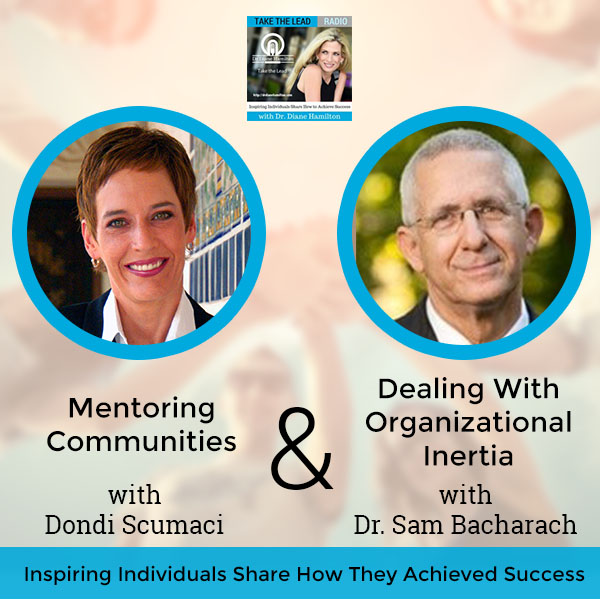
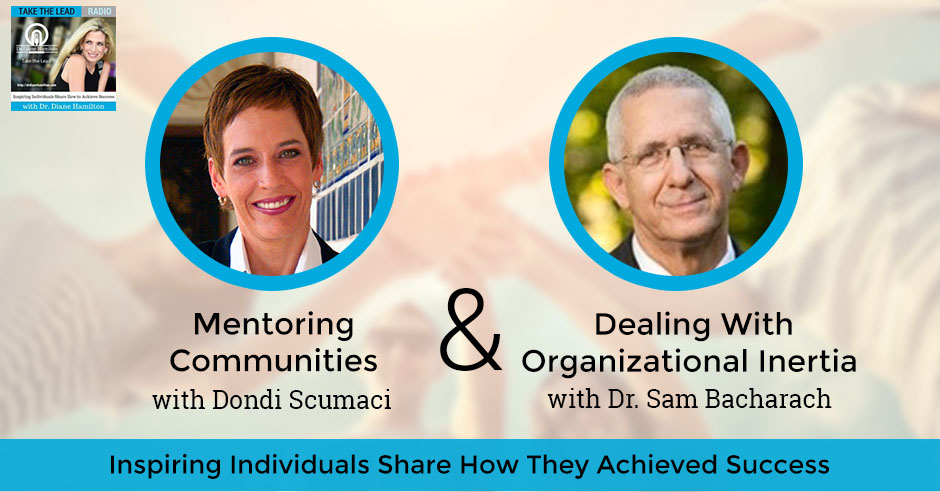
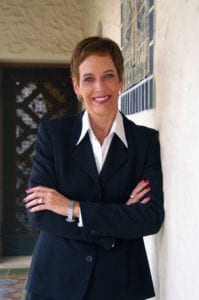


0 Comments